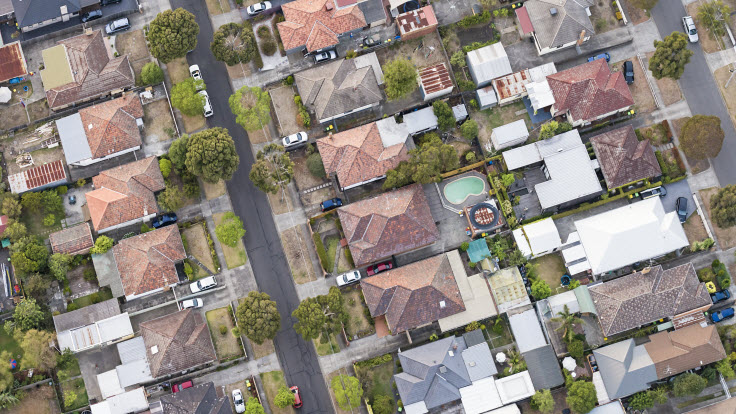Most Common Questions Asked by Tenants During COVID-19
Since the coronavirus (COVID-19) pandemic has taken its toll on our economy, many people are feeling worried about their home, job and livelihood.
Even though this is an uncertain time for us all and things are changing every day, REIWA Information Services are here to make sure you understand your rental situation as much as possible.
We know that every person’s situation is different, so we have asked REIWA Information Service to put together the 10 most common questions asked by tenants.
1. What happens if I have lost my job due to COVID-19 and cannot afford to pay rent?
Firstly, you should talk to your property manager about your circumstances. Many landlords are working with tenants during this time and hopefully an agreement can be negotiated.
It may also be worth finding out what Australian Government benefits you or your employer might be entitled to receive such as the JobKeeper or JobSeeker programs.
REIWA understands there are people who are in financial hardship during this time and are unable to pay their rent, which is why we are urging the WA Government to introduce rent assistance to help tenants and property owners during this stressful time.
With the Federal Government’s announcement of a moratorium on rental evictions, as of March 30 2020 you cannot be evicted from your rental property if you are facing financial hardship because of COVID-19. However, it is important that all tenants understand that they must continue to pay rent where their businesses or jobs have not been significantly affected.
It is also important to note that, unless otherwise agreed, those who cannot pay their rent, will have to do so once they are financially stable again.
2. I am having trouble keeping up with my rent payments, what can I do?
If you fall behind with your rent and cannot pay the overdue amount, talk to your property manager immediately. Explain the situation to them and try to negotiate an agreement to pay the money you owe.
It’s important you don’t ignore the problem and have open communication with your property manager to ensure all parties come to an agreement. You will find that most landlords understand the situation and will want to come to an agreement which will formally be known as a rent repayment agreement.
3. What are my rights if my property manager wants to conduct a rent inspection in person?
Currently the laws remain that the landlord or property manager has the right to conduct inspections, however this can be negotiated.
A tenant should discuss any concerns with their property manager to determine if any non-essential repairs, maintenance or inspections can be postponed. The tenant should try to liaise with the property manager to conduct inspections by audio visual or other electronic means.
4. What happens if I need urgent maintenance?
While a landlord does not have to conduct ordinary/non-urgent maintenance if they are suffering COVID-19 financial hardship or due to a lawful restriction on movement, the requirement to have urgent repairs attended to has not changed.
As per usual, discuss this with your property manager on the nature of your maintenance required as many agencies have protocols in place to manage the current health emergency.
Be understanding that it may take longer than normal to locate service providers who are prepared to enter a residential premise. Like you, they may feel uncomfortable about entering a property where other people are living.
5. What happens if I lose my job or experience a wage reduction before moving into a rental property?
If you have signed the lease and paid the rent and the security bond, you should contact the property manager and explain your situation and discuss agreeable outcomes.
Alternatively, you may need to find alternative premises that matches your new budget. Make sure to keep an eye out on for the emergency amendments to the Residential Tenancies Act, as they will state how much notice you have to give to break your lease.
6. If my landlord freezes their mortgage repayments, can I freeze my rent?
No, your rent is independent of the landlord’s financial situation. Many banks at the moment are offering different options to lenders during this time and are not repossessing. A landlord does not need to tell you if they are in financial hardship, so you may not even know.
7. Can I move regions?
Currently there is a travel ban to move within each state or territory in Australia and regions within Western Australia, so unless it is essential, you may not be able to move regions. As these change frequently, it is best to keep up-to-date through the WA Government website.
For more information and find out how to apply for an exemption, read the government’s FAQ’s on border control.
8. What happens if I lost my job and am not a permanent resident so I can’t receive Centrelink benefits, and can’t afford my rent?
There has always been an expectation that temporary visa holders are able to support themselves during their time in Australia and the government have made changes that will help facilitate this for those who may be stood down or lose work hours as a result of COVID-19.
In line with changes being made for Australian citizens and permanent residents, most temporary visa holders with work rights will now be able to access their Australian superannuation to help support themselves during this crisis.
You should discuss your situation with your property manager if you are not able to pay your rent.
For more information, visit Coronavirus and Temporary Visa Holders.
9. I have read that some people are still getting evicted from rental properties despite the temporary ban. Why would this be occurring?
This may have been prior to 30 March 2020 or it may have been an existing court order made prior to 30 March 2020. You can still be evicted from your rental property for breaching your tenancy agreement, as the moratorium ban on evictions is only if you are suffering financial hardship as a result of COVID-19.
10. Where can I go for more information on my tenancy?
The first place to start is your lease agreement and the associated document “information for tenant”. If you are unable to locate these, your property manager will be able to assist.
The legislation Residential Tenancies (COVID-19 Response) Act 2020 will be in force shortly and we will update this section once it has been released. In the meantime, for information relating to tenancies and coronavirus read the Consumer Protection tenancy FAQs.
Source: reiwa.com.au



